The best football club owners
In football it has become a common practice for some investor with a lot of money to acquire a majority of the shares of the institution and bring with it many changes. When taking stock of most cases, the balance tips on the side of the owners who do not do things well and leave the club in a worse situation. However, today we are going to talk about those who improved the institutions and left them or keep them in a much more positive situation.Roman Abramovich and Chelsea
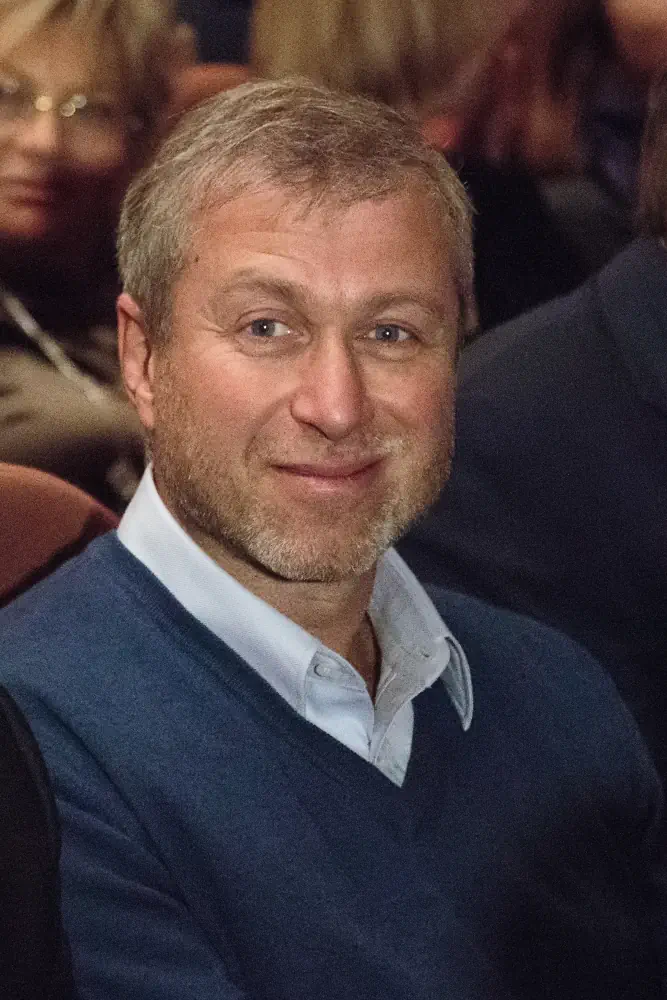
The Russian made very important investments to bring great players and managers to Chelsea in addition to investing in facilities and looking for the best sponsorship and advertising agreements that progressively brought the London club to the center of the spotlight. Before Abramovich, Chelsea won 15 trophies, of which only one was an English league title (First Division in the season 1954-55), and after 19 years with the Russian, the club managed to lift 21 trophies including 5 Premier League titles and two UEFA Champions League titles.
Due to situations related to the war in Russia and Ukraine, Abramovich had to sell Chelsea in 2022 to a consortium that is led by the American Todd Boehly, and after that the club have stagnated to a middle team in Premier League, despite major investments.
Massimo Moratti and Inter
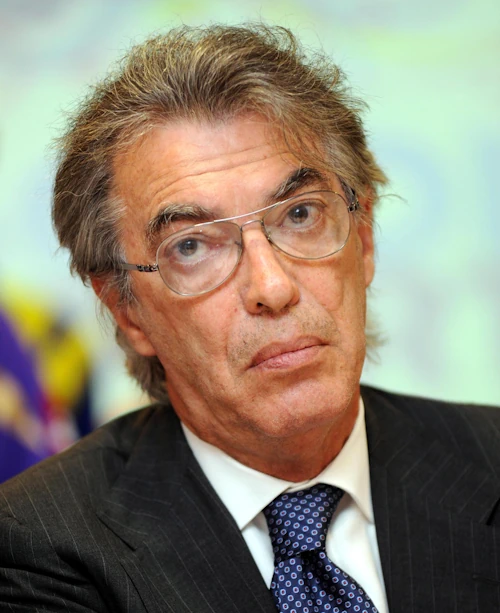
This is how, during the 18 years of Moratti's management, players such as Ronaldo, Christian Vieri, Youri Djorkaeff, Álvaro Recoba, Diego Simeone, Zlatan Ibrahimovic, Roberto Baggio, Laurent Blanc, Javier Zanetti, Hernán Crespo, Fabio Cannavaro, Luis Figo, Wesley Sneijder, Adriano, Samuel Eto'o, just to mention a few. In that period, Inter accumulated 16 trophies, highlighting the UEFA Champions League, won in 2010, 35 years after the last one won by the club, when his father was still in power. Moratti sold the majority of his ownership in Inter in 2013.
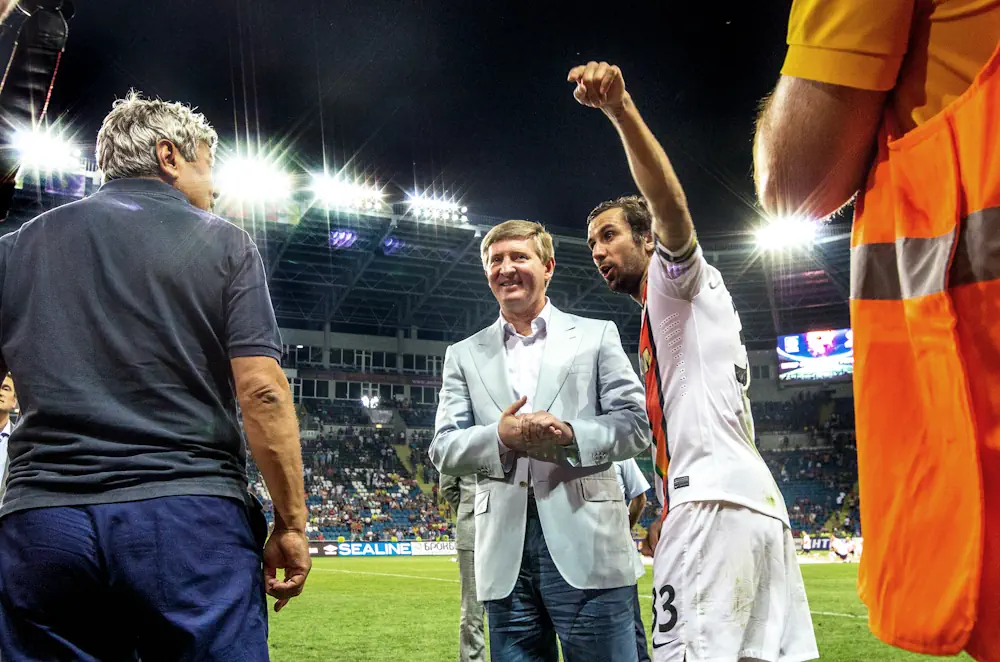
Rinat Akhmetov - here celebrating after a Shakhtar Donetsk win
Rinat Akhmetov and Shakhtar Donetsk
After the assassination of Akhat Bragin in 1995, who was the president of Shakhtar Donetsk, Akhmetov took over and from that moment on he began to invest in the club with the aim of winning a European title. As time went by, the Ukrainian billionaire acquired shares in the club until he became the largest shareholder. Akhmetov changed the club's focus by using the money to improve the facilities and conditions of the institution and little by little bring in players who fit the desired objectives.The Ukrainian has been responsible for bringing in great players who were later sold to important European clubs and above all for the arrival of Mircea Lucescu, a legendary Romanian manager who brought an era of success to Shakhtar. Akhmetv was also the main driver in the construction of the Donbas Arena, a UEFA Category 4 Stadium inaugurated in 2009 in the city of Donestk. Before 1995, the club only had 5 titles in the Soviet era and one in the Ukrainian one. From that year to date, he has 36 trophies including the long-awaited European trophy, the 2008-09 UEFA Cup.
Tony Bloom and Brighton & Hove Albion FC
Tony Bloom is a native of Brighton and a childhood fan of the city's club, Brighton & Hove Albion. In 2009, he managed to acquire the majority of the shares of the club, which at that time was in League One, and made an investment in the construction of the new stadium. Unlike other owners, Bloom began improving the club from the ground up, thinking about a project that would take them to the Premier League. In 2017, the club was already in the top tier of English football, where they have remained to date, making their debut in European competition in 2023, by participating in the UEFA Europa League.The club has a management and work philosophy that allows it to buy little-known players, value them in the team and sell them for much higher prices, guaranteeing the financial health of the institution. Bloom was also the owner of the classical Belgium club Union St.-Gilloise, beginning his management in 2018, achieving promotion to the first tier and qualification to Europe. To comply with UEFA regulations, in 2023, he sold part of his shares to become a minority shareholder.
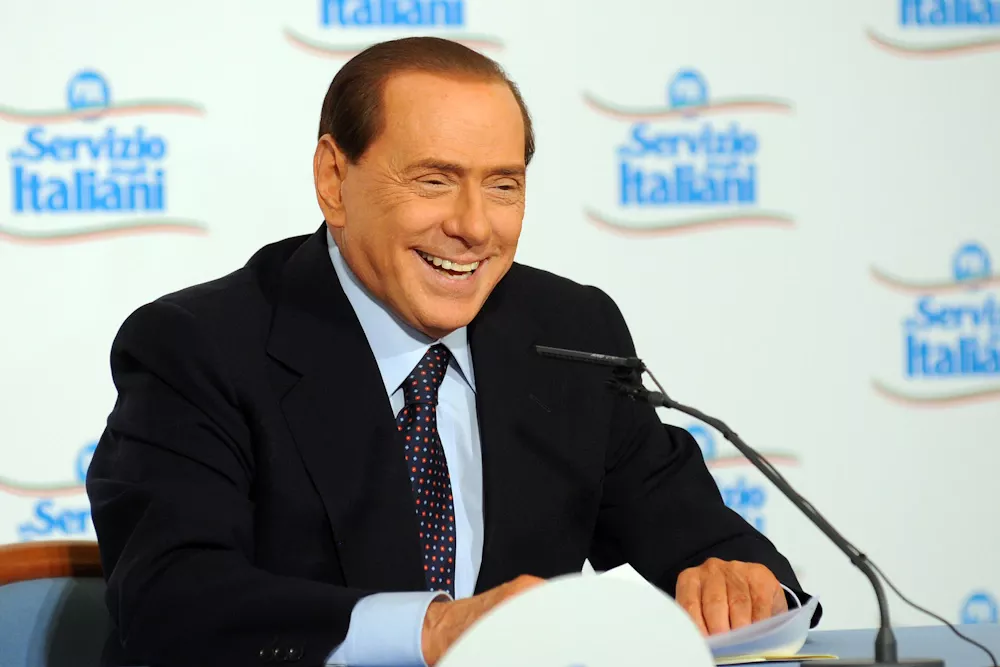
Silvio Berlusconi and AC Milan
For 21 years (from 1986 to 2017), Berlusconi was the owner of AC Milan and during that period he brought not one but at least two golden eras to the club; the first with Arrigo Sacchi and the second with Carlo Ancelotti, both establishing themselves at both a national and international level. Berlusconi led Milan to win 31 trophies during his period as its largest shareholder, including 5 of the 7 UEFA Champions Leagues the club has.Milan was characterized by having some of the best players in the world as well as top facilities, where the Milan Lab stands out, a high-tech laboratory that helps maximize player performance by monitoring many parameters and health of the athlete who, additionally, can help prolong the player's career. This was a key element in Ancelotti's Milan where players like Paolo Maldini, Cafu, Clarence Seedorf and Filippo Inzaghi, who were elderly, could perform at a high level.
Matthew Benham and Brentford
Benham is a British businessman who shares some characteristics of Tony Bloom, in fact, at one point, Benham worked for the current owner of Brigthon. Among the similarities we have that both are major shareholders of the club they supported when they were children, in Benham's case, Brentford. In 2005, he began to help the club as a mystery investor to get the institution out of a delicate financial situation, a help that he maintained over the years until in 2012 he became the largest shareholder.Another coincidence with Bloom is that when he took over the club, it was in League One and by 2021 it was already in the Premier League. Benham's model has been characterized by the use of mathematical models for his management, which includes signings. The Englishman also owned FC Midtjylland in Denmark from 2014 to 2023, winning the 5 first tier trophies that the club has in its cabinets.
Dietmar Hopp and TSG 1899 Hoffenheim
Hopp's case is particular since in Germany, by the regulations of the Deutsche Fussball Liga (DFL), professional clubs must be at least 51% owned by amateurs, except in special cases, where the investor (company or individual) , has been financially supporting the club for 20 or more years, such as Bayer with Bayer Leverkusen or Volkswagen with Wolfsburg.Despite this regulation that prevents him from appearing as the official owner of the club, Hopp, since 1990, has invested his money in TSG 1899 Hoffenheim, a club that he supported as a child and that, at that time, played in the district league, that is, the eighth tier of German football.
In 2008, the club achieved promotion to the Bundesliga, where it has remained to date, even participating in the UEFA Champions League the season of 2018/2019. Additionally, Hopp invested in the construction of the Rhein-Neckar-Arena, the club's current stadium.
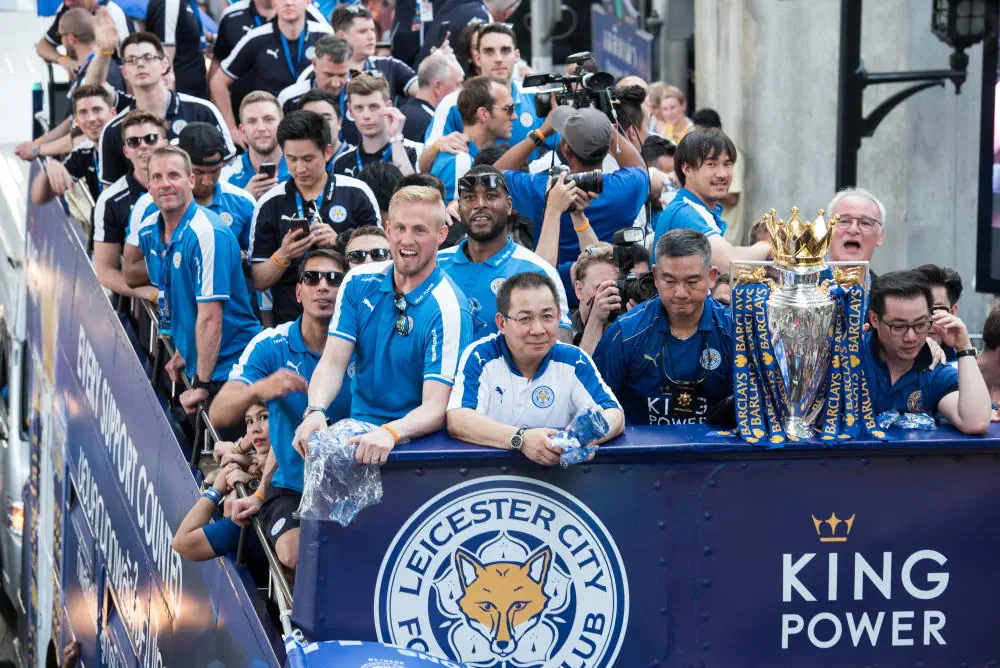
Vichai Srivaddhanaprabha - celebrating with the players after Leicester won Premier League
Vichai Srivaddhanaprabha and Leicester
We conclude with perhaps the most successful case of all, and we are of course talking about the Thai businessman Khun Vichai Srivaddhanaprabha and Leicester City. Srivaddhanaprabha made his fortune with the company King Power, which started by operating duty-free shops in Thailand, a business they still engage in today, although they have expanded into other areas within tourism.Srivaddhanaprabha bought Leicester when they were in the EFL Championship in 2010, and the reason was that, according to his own account, he "fell in love with Leicester" when he saw them play as early as 1997. After gradually improving the club, they returned to the Premier League in 2014, but it is, of course, what happened in the 2015/2016 season that is what is important here. This is the season when Leicester, against all odds and any conceivable logic, managed to win the Premier League. The season before, they had finished in 14th place, and no one could ever imagine that Leicester would be able to beat all the other star-studded teams in the league. However, they did, and considering the competition in the Premier League, it is undoubtedly one of the biggest surprises in football history.
He was a very beloved owner even before the title, but after this, he was more or less regarded as a god in the city. Srivaddhanaprabha never made any giant investments or bought in a string of superstars, but with him as the owner, sound investments were made in players and staff, and the cohesive squad, combined with the Italian manager Claudio Ranieri, was a match made in heaven.
The Thai businessman tragically died in a helicopter crash on October 27, 2018, ironically outside Leicester's home ground, the King Power Stadium, but he will always be remembered in Leicester for what he did for the club.
